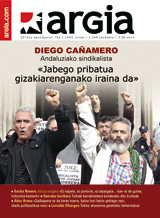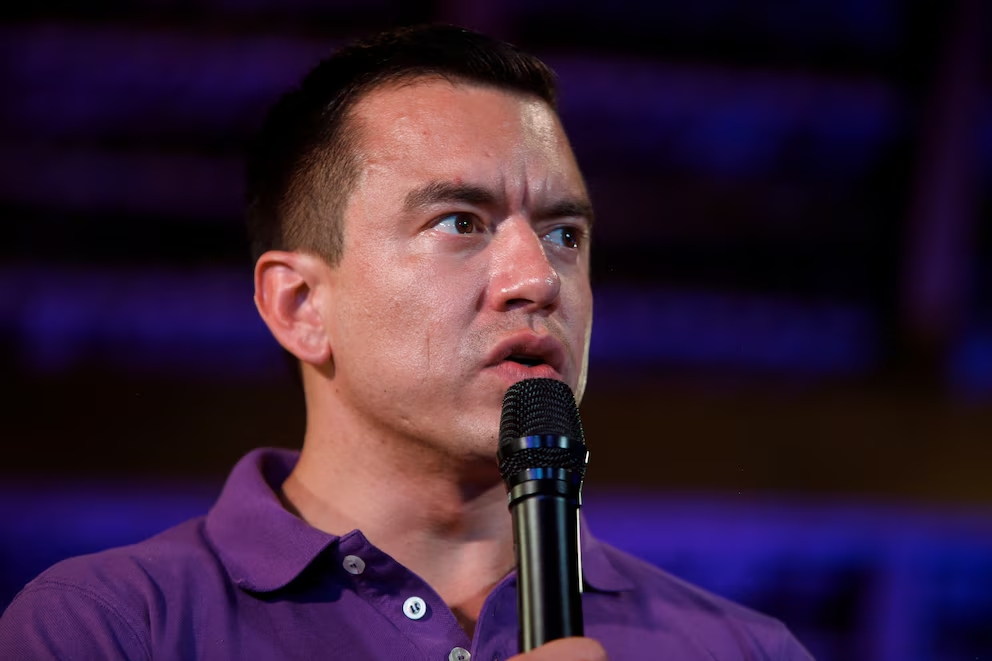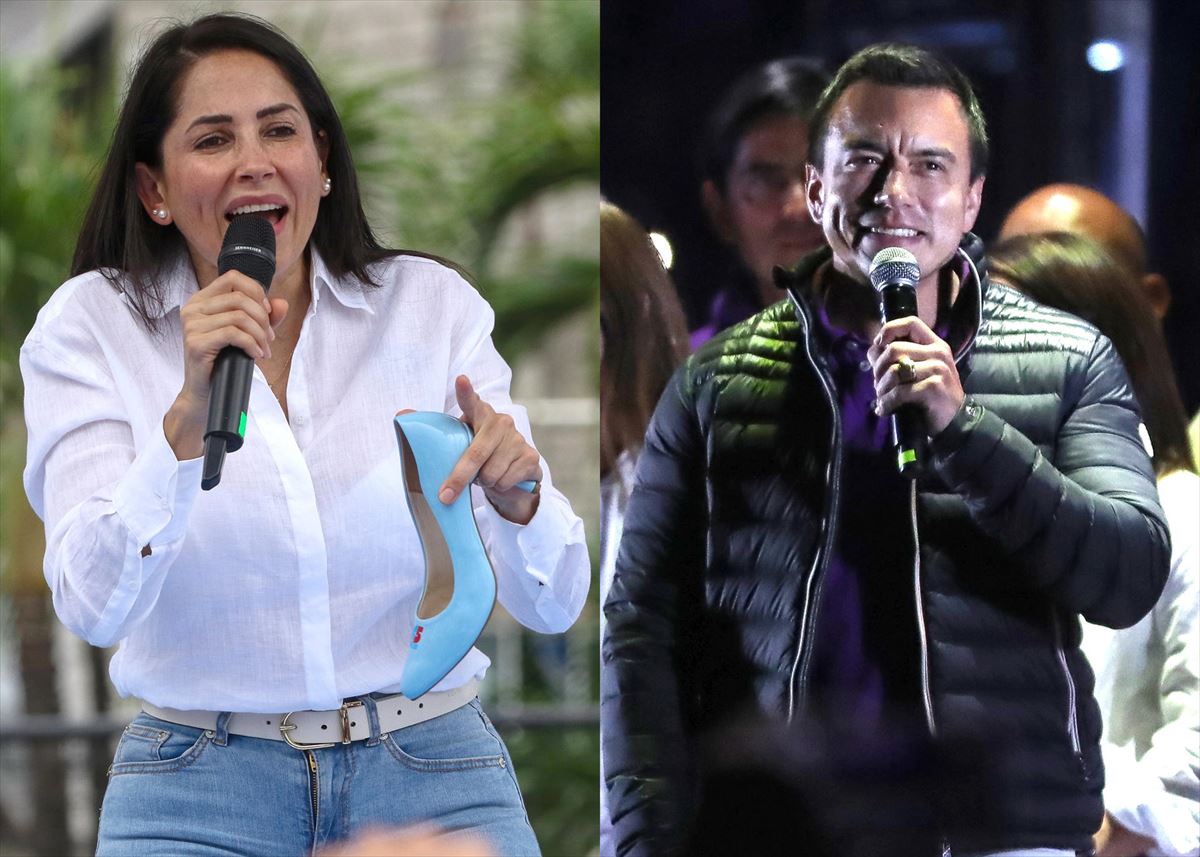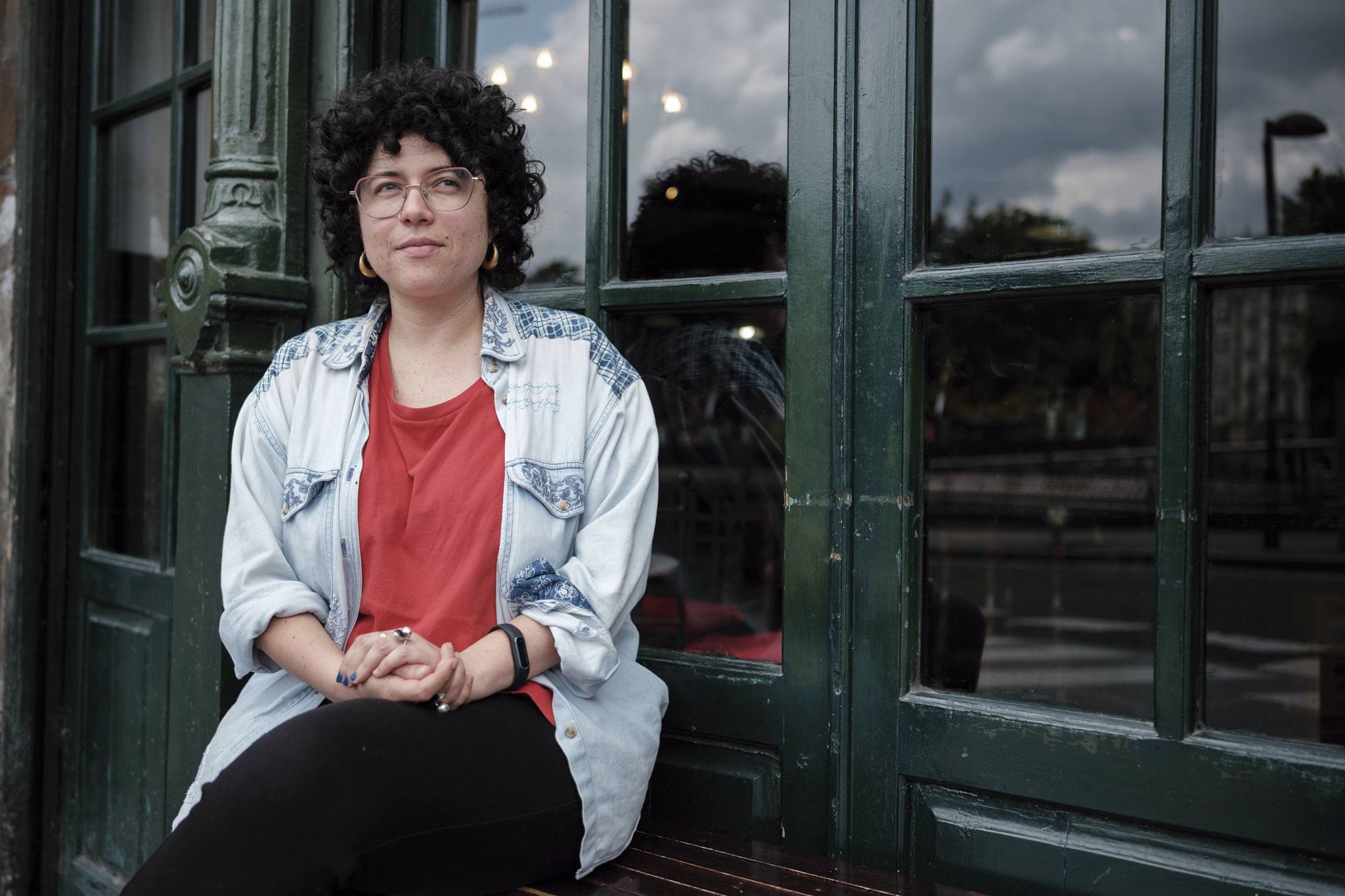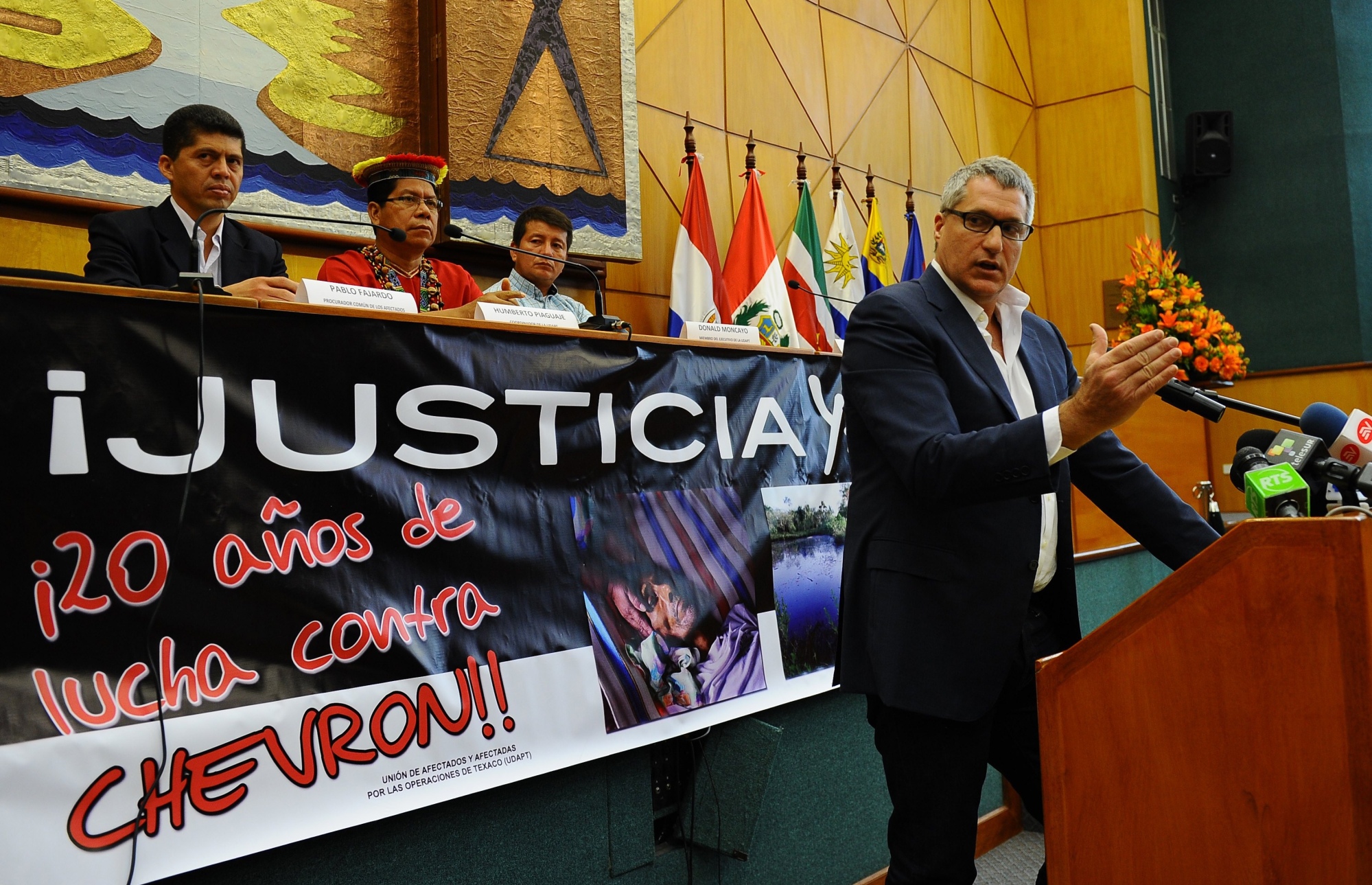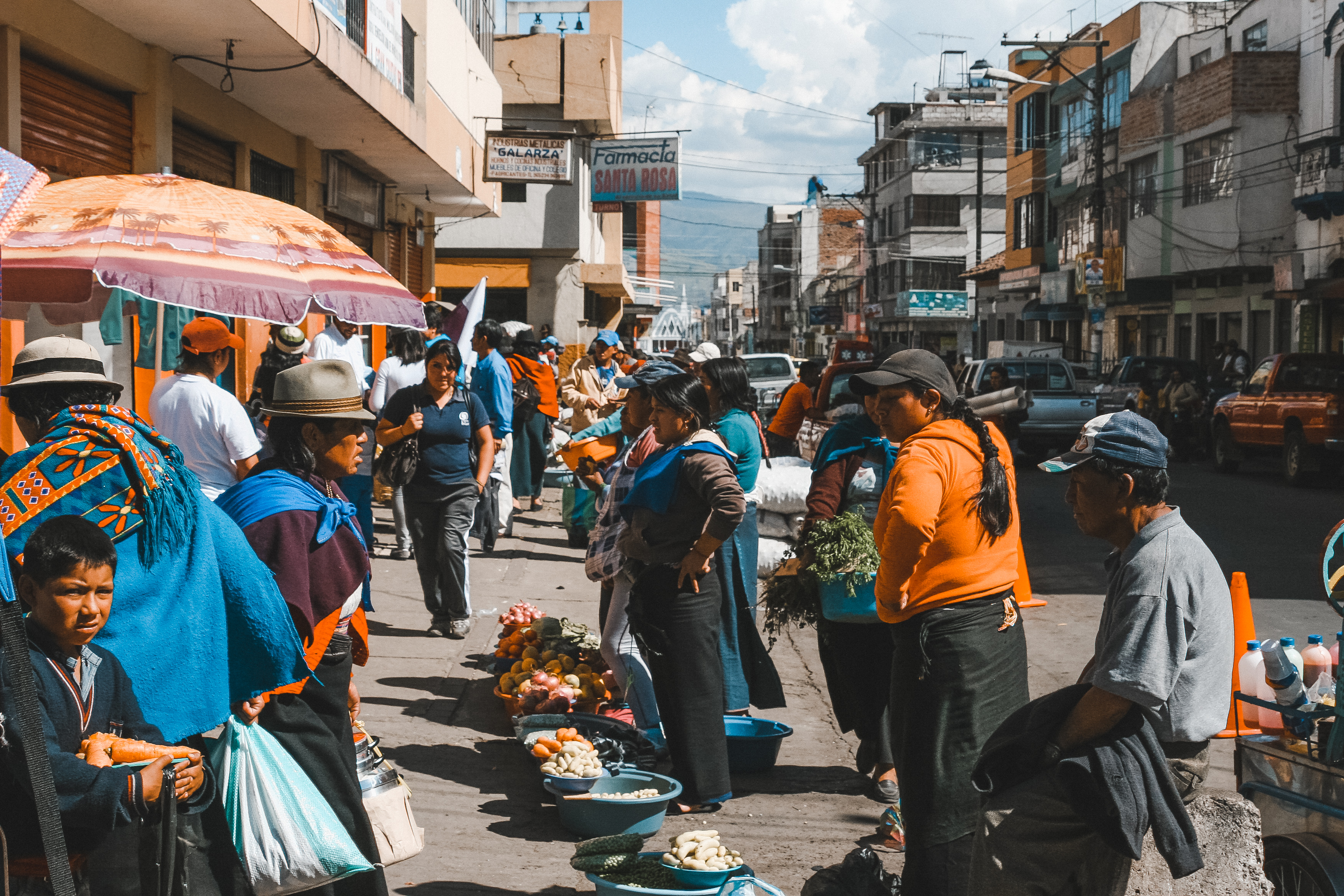"We have seen that quechua can be revitalised in Catalonia and the Basque Country"
- Sacha Rosero (Otavalo, Ecuador, 1970) has recently visited the Basque Country. It is a quechua and informatics, held last year at HUHEZI, a postgraduate course on strategies for language revitalization. Since then, he has been immersed in the task of revitalizing Quechua, helped by the experiences of Catalonia and the Basque Country.
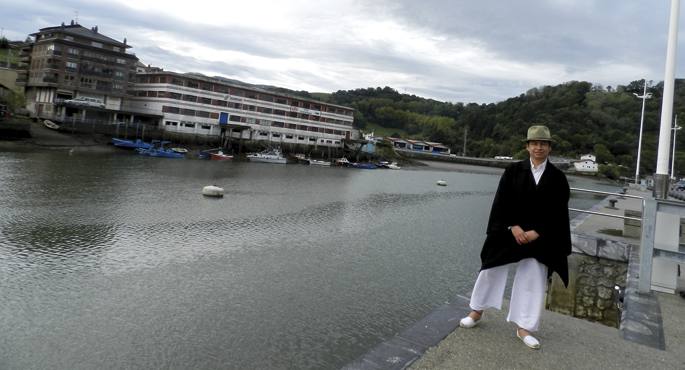
You have to tell us about Quechua, the state of your language in Ecuador.
In Ecuador we are like you 40 years ago. “Speak to the Christian… Your language is useless… It’s the language of farmers… It’s not for the university…” In basic education the quichu is not taught, we have four popular newspapers and no one publishes it with the quechua, we have 50 radio stations, but only one bilingual – not even a quechua! –, four television channels and none of them are in the sky… I told you 40 years ago. And, of course, the objective is the situation that you have now.
40 years ago.
It all started a year ago. The Garabide association organized a conference on the revitalization of the Basque Country, explained the process of the last decades, what has been done, what is the revitalization of a language. He organized the course and invited representatives of several communities with minority languages: the Maya, the Aimara, the Ketxu, the Quechua… In the Amazon there are hundreds of languages that are disappearing in the east of the jungle. I didn't know until last year! I'm a computer scientist, I work online marketing, but I was in that course ...
You are a quichua.
Yes, indigenous Quechua. We are a human team of three million people, we live in the Ecuadorian Andes. Our language, in itself, comes from yetxua, that is, from the Peruvian language, or from tahuantinsuio. Tahuantinsuio, prior to the conquest of the Spaniards, was the north of Argentina, Bolivia, Peru, Ecuador and southern Colombia. All this was the Inca Empire and they had the “official” language. The Quichu came from the mix of Jetxua and Karank, which at that time was our Caranca language. It's part of the Ketxu, if you like, what Valencian and Catalan Mallorcan look like. They're almost the same.
How many are the Quechua speakers?
In Ecuador, where it used to be Tahuantinsuio, in all of Latin America, we are about thirteen million. A lot. Or enough! We are engaged in a process of dialogue to make the Pan-American Quichua, where we have also copied nationalisms. “No, I am not a Peruvian, my language is different!” And others like that. If we come together, we are something. If it doesn't join, nothing. Having thirteen million, or three million… Taking all of Latin America has a lot of economic and political strength.
Are the three million Ecuadorians in a common or scattered area?
Dispersed in communities. In Ecuador we have three dialects: the Northern Quechua, where Quito is, the Central and the South dialects. But, as I said, language is the same. For example, to say “dog”, we say allku, and in the south, axku. And now comes the question. Kar, ja, ja… Ten years ago, they began the process of normalization of writing and, at the same time, started a bilingual national education – Spanish and Quechua – and with that reason, the Quichua were unified. It's over.
He said bilingual education. Quechua is taught.
In rural schools, in rural villages…
In high schools, you mean?
That's it. And the result is also catastrophic. Children attending these bilingual classes have only one teacher or teacher. That is, a single teacher and a single room, where all the first to sixth grade children are. Students can't, they don't have a level, because they want to go to city school. I thought I couldn't get into college. I think that model has failed. We would like to do the opposite, to do the way they have done here.
What path?
Last year we were at HUHEZI, Arrasate University. Garabide has worked a lot. [Xabier] Mendiguren and others. When we met them, we realized that they are the eminences that have guided the process. They told us their experience, they shared their knowledge with us. The media are important, but it is based on education and teaching models: A, B and D. That is why we are speaking in Ecuador. We have launched a project, called Kitxu sisai, which means “flowering of the Quechua”. According to our planning, in five or six years the Quichu will be taught in the 600 schools in the province, such as the second H2 language. Model A, in short, but as a first step. In ten years we will create the Kitxua ikastola. We don't know what the name will be, but that will be the kitxua ikastola.
Do you want to wait ten years?
Because we don't have teachers! We need teachers who teach our language, and for that we first have to prepare them. As happened here.
In the months I've spent at HUHEZI, I learned that, that you have to feel the language of your heart, that you have to understand the importance of language in culture. I've told you, I'm a computer scientist, I've lived in Barcelona until recently. He said to me “I am indigenous” – here is my hat, my ponchito, our special food… – but I did not want it in my language. But now I realize that my hat is Italian, it's not ours. Alpargatas, we have the Spanish tradition. As for the pants I wear, they forced us to dress, enslaved us and forced us to work to make us khumbug to bring them to Europe. This is not ours, nor is it our… Nothing is ours, but the language! If we lose the language, we lose the space of culture. We live through language, we live our culture. All cultures have been oral, they have been transmitted through language. Transmission in one language or another has a totally different meaning.
So you've come to Euskal Herria.
Yes. We believe it is important that the teachers we are preparing also create language militants. That's what I've seen. Unesco, for example, has put us on the list of endangered languages, there is no knee transmission! Our parents and grandmothers forced them to say “Yanga ximi”, that is, “a language that does not serve”. “Let’s talk yanga ximi” They said it over and over again! But not so, the runga is laughed, that is, “the language of man”. Now, families, for good, supposedly speak Spanish to their sons and daughters, so that they can have a better future and not be led by the shame that they have experienced themselves. Their children come to rural schools and they don't know how to talk about Quechua. For example, we are the last generation to speak Quechua. The next generation is a passive speaker. And those who have grown up in cities know neither two about the kit.
Speaking of the work you do, you say “we.” Who are you “us”?
We are a generation that speaks of Quechua, which has had the opportunity to know other cultures than ours. Some of us have been able to know the situation in Euskal Herria and see that there is a way to revitalize a language. We've seen that Euskera, Catalan, Hawaiian can be strengthened and normalized, that it's possible to revitalize language. We are people who work in different fields, sociologist, computer science, economist. Together with us, some public and private institutions, that are doing something for Quechua, or that are interested in doing it. I, for example, am the chairman of the association Runa Patxa, an NGO that we founded in Catalonia nine years ago.
So you're not newbies.
We started to promote culture in Barcelona, we have worked in the teaching of language, in the organisation of cultural events of all kinds. The last two years, on the other hand, we have completely joined the language. We too have arrived!
Starting to work in Catalonia, I thought that Ecuador needed to save Quechua. Your tongue could be in a state of life or death.
According to Txepetxe, the tongue is lost in three generations and recovered in three. We are the last generation of speakers, and it's our responsibility to revolutionize the process of loss. The generation that comes after us is going to have a lot of work, a lot of difficulty. We speak Quechua. They don't.
Quechua talking to you in Barcelona!
I have been abroad for twenty-one years. The United States, Brazil, Venezuela, Africa, Spain… With our project, I was in Ecuador nine months ago. There's the battlefield, I know. And now, amidst the economic crisis and other complicated situations, I'm going to live there. It's over. That is where we must fight. The team that does the most work is also Otavalon. We all form Kitxua xum. Kitxua xum means “let’s live with quechua!”, “let’s be the quichua!” This institution will be in charge of steering the whole process. We've started the match, but not only are we doing it, there are a lot of people who are collaborating. We are playing the game, but we have the legal advice of the Generalitat of Catalonia, which is supported by the Directorate of Linguistic Policy. “Now there is no money, but we have no objection to sharing with you the steps we have taken on the road to the normalization of Catalan. On the contrary, at least that’s what we have to do.” We only want a technical direction so as not to make the mistakes that you have made here. The same is true of the Basque Country. The revitalization of our language is more similar to that of Euskera than to that of Catalan. For starters, Quechua is not a Romanesque language either. We would need a mix between Catalan and Basque as far as the process of normalisation is concerned. Cooperation is essential to us. We were losing Quechua. It was impossible, impossible, and yet we have seen that it is possible.
What is the power in Ecuador? Do you have sensitivity, awareness, involvement with quichua?
We're Andean, and because we're Andean, we have patience to believe, we believe in the earth, we believe in the energy of the planet. It's not just believing, we know it's alive, like all other living things. Everything we do is done along with this belief: places of time. On our team we also have the Yachis, the shamans here, spiritual leaders. They know our culture well and we want to integrate their wisdom into our project, ours is a linguistic project, but also a cultural one. According to that, it seems that the time has come to put the command in our favour.
What do you mean?
Legally, we have legal protection. There are ten languages spoken in Ecuador. It's all full of quechua. According to the Constitution, Quechua is the co-official language in the places where it is spoken. We therefore do not act against the state. A year ago, however, a new Education Act was passed, which was chaired by Deputy General Correa. Correa is doing a lot of good things. I don't like how we manage power, but I think it's working well. That education law literally says: “All Ecuadorians have the right to receive education in their own language.” It does not, of course, say when, how, where, who does not, but the legal framework is established. What they told me in the Generalitat Language Policy Directorate: “Without that framework we have done everything we have done. Still, in Spain, minister, he said: ‘We want to Spanish the Catalan children’. You, with that framework, can do a wonderful job.”
“Ni bezala jantzitako jendea, ile luzea, plazarik plaza saltzaile… Otavalo gara. Gure musika eta artisautza harturik gabiltza munduan. Saltzaile kualitate nabarmen hori duen komunitate indigena bakarra gara. ‘Indigena juduak’ gaituzu, munduko lau kornerretan ikusiko gaituzu, gure produktuak salgai. Gizarte kapitalista baten baitan bizi gara, eta dirua duenak boterea du. Guk, bestalde, gure buruak hezteko aukera izan dugu. Orain dela bost belaunaldi, berriz, ez genuen hezkuntza eskubiderik, galarazia genuen eskolara sarrera. Gurean osaba-izebak izan ziren eskolara sartzen lehenak, unibertsitatera iritsi zirenak. Harrezkero, bidea egin dugu, eta gaur egun otavaloak zoko guztietara iritsi gara. Badituzu ekonomialariak, abokatuak, medikuak, ingeniariak…”









